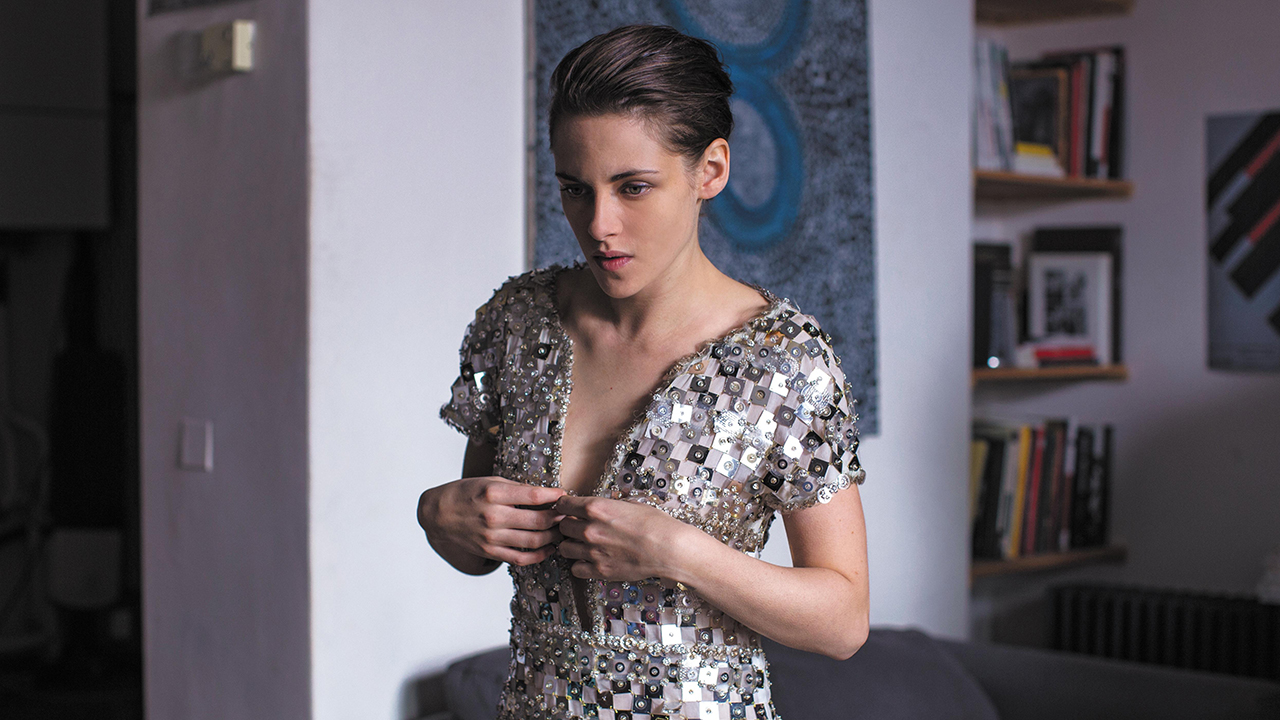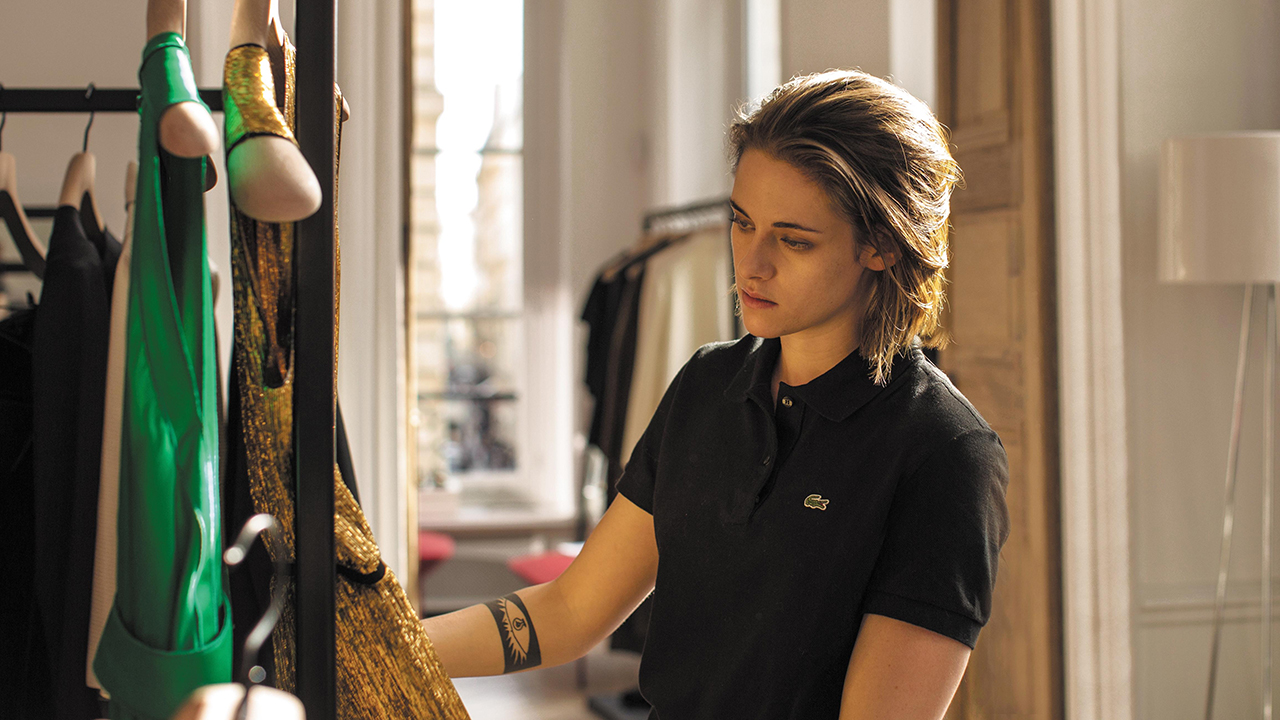Personal Shopper: the Kristen Stewart ghost story that got booed at Cannes 2016

While all eyes at the Cannes Film Festival are focused on the horizon and Nicolas Winding Refn’s LA-based cannibal-supermodels horror movie The Neon Demon, French master Olivier Assayas (Irma Vep, Carlos) has blindsided audiences by conjuring up a spooky tale of his own. Also set in the world of high fashion, the always intense, mostly compelling Personal Shopper is grounded and fantastical, terrifying and silly; its end credits were met with a smattering of applause and a chorus of half-hearted boos.
Kristen Stewart, who’s already wowed Cannes with her warm, open turn in Woody Allen’s festival opener Café Society, plays Maureen, stuck in the unfulfilling job of purchasing couture and designer jewellery for German supermodel Kyra (Nora Von Waldstatten). It sounds glamorous, ricocheting from Paris to Milan to London with blank cheques stuffed in the pockets of her black skinny jeans, but the schedule is punishing and Kyra barely acknowledges her existence.
So far, so Cannes – the exact kind of acutely observed, urgently directed real-world drama that the competition specialises in.
But did we mention that Maureen is also a medium who is trying to connect with her dead twin brother? Protracted scenes see her tiptoeing around a large, shadow-shrouded house in Paris, calling his name like she’s wandered into a Ti West movie. And then she starts receiving mysterious, creepy texts on her iPhone, this hairpin turn morphing Personal Shopper into a psychosexual thriller on top of a ghost story on top of a dramatic character study.

A film you’d more expect to see at FrightFest than in the main competition at Cannes – think Mario Bava’s Blood And Black Lace filtered through an opaque lens – the boos were all too predictable, though there can be no denying that the coda is unnecessary, and intermittent glimpses of a CG ghost evaporate all tension. But there is a lot here to admire, from Stewart’s awkward, coiled, fidgety performance (she’s in every frame), to Assayas’ absolute sincerity in exploring spiritualism and grief, to slippery subtexts that invite multiple interpretations.
Maureen is both a part of this world of wealth and apart from it, guiltily staying in Kyra’s apartment when she’s out of town and trying on her outfits. Does her envy/scorn unleash an insidious force upon Kyra, whose ex-boyfriend is hanging around? Is it in fact Maureen who is being punished, or punishing herself? What to make of the doppelgänger motif that repeatedly rears its head(s), or Stewart’s semi-naked form being fetishized one moment, desexualised the next?
One thing is certain: the suspense set-pieces that punctuate the action are first-rate, the air of menace so palpable you could stick a knife in it and watch the handle quiver. Rather bizarrely, much of the second act of Personal Shopper is Maureen playing an urgent game of text ping-pong with her e-stalker. We all know that characters typing and messaging in movies is tedious, and the sequence goes on far too long – and yet it doesn’t, proving so unrelentingly tense it demands viewers hold their breath for a good 20 or so minutes. A later bit of text-message chicanery is nothing short of inspired, cleverly updating the old ‘They’re calling from inside the house’ ruse (see 1979’s When A Stranger Calls) to heart-stopping effect.
Sign up for the Total Film Newsletter
Bringing all the latest movie news, features, and reviews to your inbox
Personal Shopper is a strange movie that doesn’t always work, of that there can be little argument. But its very oddity is what makes it intriguing, and Cannes is made all the more special by curveballs such as these. Refn refers to this particular festival as beaming “cinema from the future”. Well, it’s now over to you and your cannibal supermodels, Nicolas; if The Neon Demon is more ‘out there’ than this, it will have been a freaky crop of films indeed.
Jamie Graham is the Editor-at-Large of Total Film magazine. You'll likely find them around these parts reviewing the biggest films on the planet and speaking to some of the biggest stars in the business – that's just what Jamie does. Jamie has also written for outlets like SFX and the Sunday Times Culture, and appeared on podcasts exploring the wondrous worlds of occult and horror.


